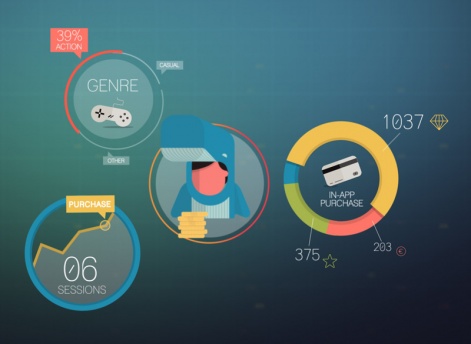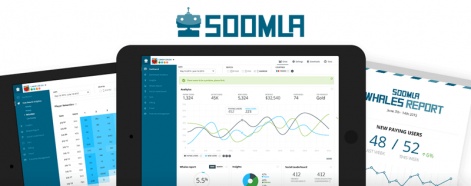Gur Dotan is co-founder and VP Marketing at SOOMLA, an open source company with the mission to drive game developers’ success with technology and data.
In-App Purchases (IAPs) have long been the leading way to monetize mobile apps and specifically games.
Many words have been written about this topic since Apple first announced the feature and today as much as than 90% of app stores revenues are generated from IAPs.
Given the dominance of this revenue channel, it is surprising that the ecosystem around it was rather quiet.
That is until recently.
New tech
Traditionally, there were a few client side libraries that simplified the integration of purchases inside apps and were saving developers weeks of work.
Second tier game engines such as Corona, GameSalad, GameMaker studio and V-play included this feature in their platform, while the two leading engines, Unity and Cocos2d-x had this territory opened for third parties.
Most providers in this category are small companies and individual developers but this is all changing.
The space started heating up in June this year when SOOMLA raised $5.5 million.

SOOMLA was the first company to realize the potential in the IAP data and leveraging their market leadership in the IAP space they launched the GROW network, which allows every developer to learn about top spending users who made purchases in other games.
All aboard
In the July newsletter of Cocos2d-x, Chukong announced that they have added IAP support to their SDKBOX solution.
Given that the IAP plugin is offered for free, you can easily understand that Chukong's interest here is in the IAP data.
We allow devs to choose their IAP plugin and independently decide if they want to participate in GROW.
Meanwhile, our research shows that SOOMLA also partnered with Chukong and Prime31 to allow developers to opt-in to the GROW network regardless of what IAP plugin provider they select.
As SOOMLA CEO Yaniv Nizan explains: "We initially built the GROW network to serve our community but as we launched we received requests from developers who are using other IAP solutions to join the network.
"We are allowing developers to choose their IAP plugin and independently decide if they want to participate in GROW and send data to the community".
The response from Unity came soon enough. In the Unite 2015 Boston event, the game engine giant announced that they will be launching a new feature to allow developers to integrate IAPs inside the engine.
Unity also hinted that they are after the data by explaining that the IAP feature will report directly to their Analytics platform. The new feature is supposed to come out as part of Unity 5.3 release.
What next?
You may be asking yourself, why are three companies racing for a market that seems to have only free products?
In reality the thee companies are competing for the IAP data.
In an industry with soaring marketing costs, mobile publishers spend millions of dollars struggling to acquire a rare breed of lucrative top paying users, also known as whales, which account for more than 50% of app revenues.

The ability to predict which users are whales is becoming increasingly important.
SOOMLA's take on the data stems from its community-oriented, grassroots approach to technology. As an open source shop, the company is bringing its sharing and collaboration philosophy to the worlds of data and analytics.
While Unity has yet to speak of its strategy around in-app purchase data collection, it is hard to say whether developers will benefit from the collective data pool, or rather whether Unity will keep the data closed.
"We truly believe in empowering developers with each other's data, and we're challenging Unity to join hands with us." says Nizan.
Powerful insights
The pursuit for in-app purchase data, or more collectively in-game behavioral data, also serves forecasting capabilities for studios asking what games to develop next.
Market data platform App Annie helps developers research game revenues , but presents macro data with limited insight to what exactly people are spending on in games, at prices that most studios can't afford.

SOOMLA vows to change this with its debuting service called "Game Recommender System", which predicts genre and game design attributes that will guarantee success for a studio's upcoming title.
Given the studio's existing user base, the system's algorithm characterizes those users' gaming preferences across all other correlated games they play.
The result is a data-backed executive summary with well-established recommendations for next game development.
As gaming becomes relentlessly data driven, the battle of IAP plugins might soon be over, but the war of IAP data platforms is just starting.
You can find out more details about SOOMLA's offering via its website.






















